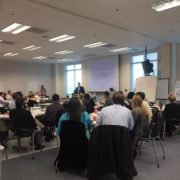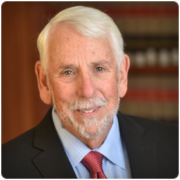Four Questions to Ask a Collaborative Divorce Lawyer
More and more people are deciding that they want to avoid the traditional adversarial divorce court system and instead handle their family law matter privately and respectfully via the collaborative process. In collaborative divorce, each spouse receives independent legal advice from his or her own attorney, and the attorneys are retained solely for the purpose of reaching an out-of-court agreement. Oftentimes, experts will be brought in to help with parenting or financial issues.

As collaborative divorce is becoming more popular and since Florida Governor Rick Scott signed the Collaborative Law Process Act in March 2016, more attorneys who are steeped in the old system of divorce court are now advertising that they offer collaborative services. The issue is that the skillset needed to successfully help clients reach dignified agreements in collaborative practice is very different than the skillset needed to be an aggressive trial lawyer.
Below are four questions you should ask any attorney you are interviewing to possibly represent you in the collaborative divorce process.
Have you completed a 2-day Introductory Collaborative Law Training?
Collaborative family law is very different than traditional family law. Attorneys need to learn not to rely on judges or the threat of the use of judges to make important decisions for families and, rather, empower clients to make decisions that are best for their particular circumstances. Attorneys must learn to work effectively and efficiently with therapists and financial professionals and look beyond the traditional legal paradigm of merely “settling” disputes. The minimum training that any lawyer needs to competently represent clients within collaborative practice is a 2-day Introductory Collaborative Family Law Training that meets or exceeds the standards of the International Academy of Collaborative Professionals.
Many attorneys have not taken this minimum training. This is because the training is an investment, and it can cost several hundred dollars. Further, the training takes attorneys out of the office for two days, and many attorneys are not willing to suffer that loss in billable hours. If a lawyer has not completed a 2-day Introductory Collaborative Family Law Training, he or she should not be advertising as a collaborative attorney.
What advanced studies in collaborative practice have you completed?
The 2-day Introductory Collaborative Family Law Training is just that: an introduction. It’s purpose is to provide the fundamentals of collaborative practice and a survey of various substantive and procedural issues that any new collaborative professional will face. Think of it as Collaborative Law 101.
To become skilled and knowledgeable in any area of the law, a lawyer must commit to going beyond the basics. There are plenty of advanced collaborative trainings that take place around Florida and beyond, along with conferences sponsored by the Florida Academy of Collaborative Professionals and the International Academy of Collaborative Professionals. Additionally, any attorney committed to helping clients via collaborative practice will have engaged in self-study and likely have copies of seminal works available, such as Forrest S. Mosten’s Collaborative Divorce Handbook: Helping Families Without Going to Court and Pauline Tesler’s Collaborative Law: Achieving Effective Resolution in Divorce without Litigation.
Are you a member of a collaborative practice group?
A collaborative practice group is a local organization with a purpose to educate professionals and the public on collaborative practice. It is similar to a local bar association (such as the Hillsborough County Bar Association or the Clearwater Bar Association), except that membership includes not just attorneys, but also financial professionals and mental health professionals. Collaborative practice groups help professionals stay on top of the latest trends in collaborative practice and get to know one another so they can more effectively help clients when they have cases together. There are several collaborative practice groups within the Tampa Bay and Greater Sarasota areas, the largest of which is Next Generation Divorce.
How many collaborative cases have you been involved in?
Though collaborative practice was developed by Minnesota divorce lawyer Stu Webb over 25 years ago, it has become more available in Tampa Bay only within the last 2-3 years. Accordingly, most collaboratively-trained attorneys in the area, even those who have been practicing traditional court-based divorce for decades, have had 0, 1, or 2 collaborative cases. Understandably, they may feel uncomfortable directly answering this question. But you have the right to know.
If you would like to speak with an experienced collaborative divorce attorney, schedule a consultation with Family Diplomacy: A Collaborative Law Firm at (813) 443-0615 or CLICK HERE to fill out our contact form.
Adam B. Cordover is co-author with Forrest S. Mosten of an upcoming American Bar Association book on Building A Successful Collaborative Law Practice. Adam is former president of Next Generation Divorce and a graduate of the Leadership Academy of the International Academy of Collaborative Professionals. Adam is also a founder and principal trainer of the Tampa Bay Collaborative Trainers.





Leave a Reply
Want to join the discussion?Feel free to contribute!